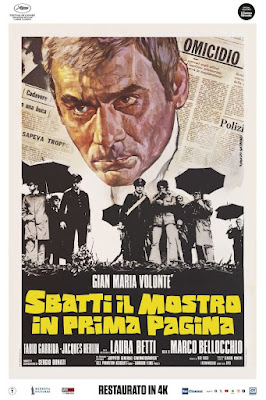Expressions of grief and guilt evoked a feverish pitch and guttural howl in Marco Bellocchio’s emotionally turbulent and nakedly personal film The Eyes, the Mouth. His twin brother Camillo had committed suicide in 1969, which left a lasting impact on him. Made 13 years after that tragedy, it served as a means to reconcile with that traumatic memory. Giovanni (Lou Castel, serving as Bellocchio’s stand-in) is a washed-out actor – his unhinged turn in the director’s ferocious debut feature Fists in the Pocket is referenced as a past glory – who’s reluctantly returned to his hometown upon the suicide of his twin brother Pippo. Once actively involved in radical politics, he’s now disillusioned, self-hating and deeply troubled, forced to reconnect with his patronizing uncle (Michel Piccoli) and his devout mother (Emmanuella Riva) who’s been made to believe that Pippo died accidentally. Meanwhile he starts developing complicated feelings for Vanda (Ángela Molina) – the promiscuous and seemingly carefree daughter of an exasperated South American immigrant (Antonio Piovanelli) – as she refuses to display any grief for Pippo’s death, despite having been his fiancée. He gets drawn into a sordid and scabrous affair with her, and spinning a web of deceit for his tormented mother, as he must confront the anger and pain that he feels for his dead brother who, ironically, was considered the saner and the more grounded of the two. Castel and Molina were both astonishing and fearless in the way they physically and emotionally bared themselves in this tumultuous and melancholic work that was powerfully co-written by Catherine Breillat, sumptuously photographed in washed-out colours, and hauntingly scored. Bellocchio returned to his memories of Camillo 40 years later in Marx Can Wait.
Director: Marco Bellocchio
Genre: Drama/Psychological Drama
Language: Italian
Country: Italy








































